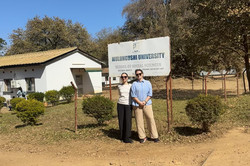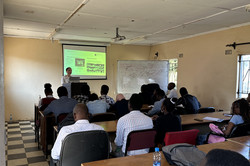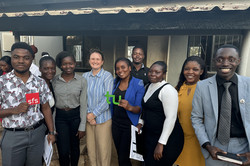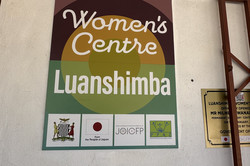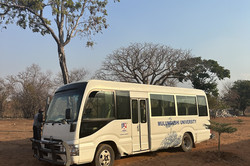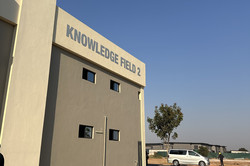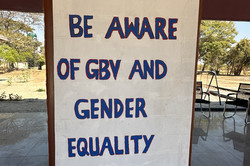2025
Strengthening transnational cooperation: sfs team from the SmartVille project visits Zambia
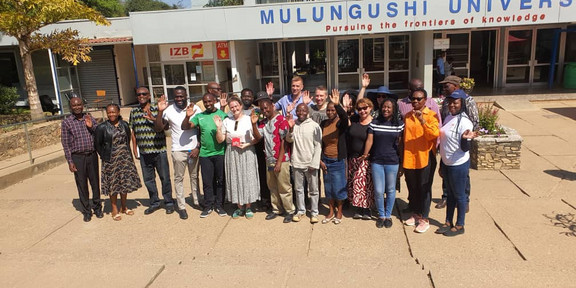
The transnational Erasmus+ project "SmartVille – Developing Sustainable and Entrepreneurial Villages through Educational Living Labs in Namibia and Zambia" aims at developing formal and non-formal education programmes for universities and communities in rural areas of Zambia and Namibia. The work is being carried out by an interdisciplinary team consisting of partner universities from Zambia, Namibia, Finland and Germany. With a focus on creating equal opportunities, disadvantaged groups in particular are offered educational opportunities by implementing so-called Smart Living Labs in selected communities. Solar-powered cookers are to be installed in these labs, which will simultaneously improve the power supply and open up time windows for education by eliminating time-consuming activities such as the procurement of firewood or charcoal. With the help of innovative teaching and learning concepts and a focus on entrepreneurship skills, the labs will offer needs-based training. In terms of equal opportunities, the focus is on the integration of women, people with disabilities and young people, as they tend to have less access to education and employment due to the established practices of the division of labour. In addition, the curricula of the Zambian and Namibian partner universities are being strengthened by specifically implementing content on the topic of entrepreneurship.
The project activities started in Kabwe, at Mulungushi University, around 140 kilometres north of the Zambian capital Lusaka. Under the leadership of Kerstin Guhlemann, the sfs team organised a workshop on the topic of "Entrepreneurial Mindset" with students from a wide range of disciplines, which proved very popular with the Zambian students. In addition, a village in the Kapiri Mposhi District was visited, as one of the two Smart Living Labs planned for Zambia is to be implemented here, making it necessary to assess the local conditions and needs. To this end, focus group discussions, led by Christine Best, were held on the topic of inclusion and participation with residents and thus future users of the living labs. The project group then returned to the capital, to the University of Lusaka, to carry out a Student Innovation Challenge with two real business cases from Finnish companies. The sfs was involved here too. In addition to Luanshimba in the Kapiri Mposhi District, Kasisi, another community near Lusaka, was also visited for the needs analysis, as the second Zambian Smart Living Lab will be built there. The trip then led to Livingstone, where the Medical School of Mulungushi University was visited.
As period poverty is a major problem in Zambia and can prevent women and young girls from attending school and participating in the Living Labs, the sfs project team launched an appeal for donations in the run-up to the trip, which raised around €800. The donations were used to purchase reusable sanitary towels as well as disposable sanitary towels, which are more user-friendly for use at school due to the lack of sanitary facilities. The products are passed on to women and young girls in the villages of the Smart Living Labs. As the village in the Kapiri Mposhi District has a newly established Women's Centre where women can learn to sew, among other things, the idea of producing and selling self-sewn, reusable sanitary pads is currently being examined as a possible business model.
Further information: http://www.smartvillelivinglabs.com/




![[Translate to English:] [Translate to English:]](/storages/zentraler_bilderpool/_processed_/a/f/csm_Kontakt_b86e8d8ecc.png)
![[Translate to English:] [Translate to English:]](/storages/sfs-sowi/_processed_/7/e/csm_header_collage_sfs_eving_sozialforschungsstelle_dortmund_31bd3c09fb.jpg)
